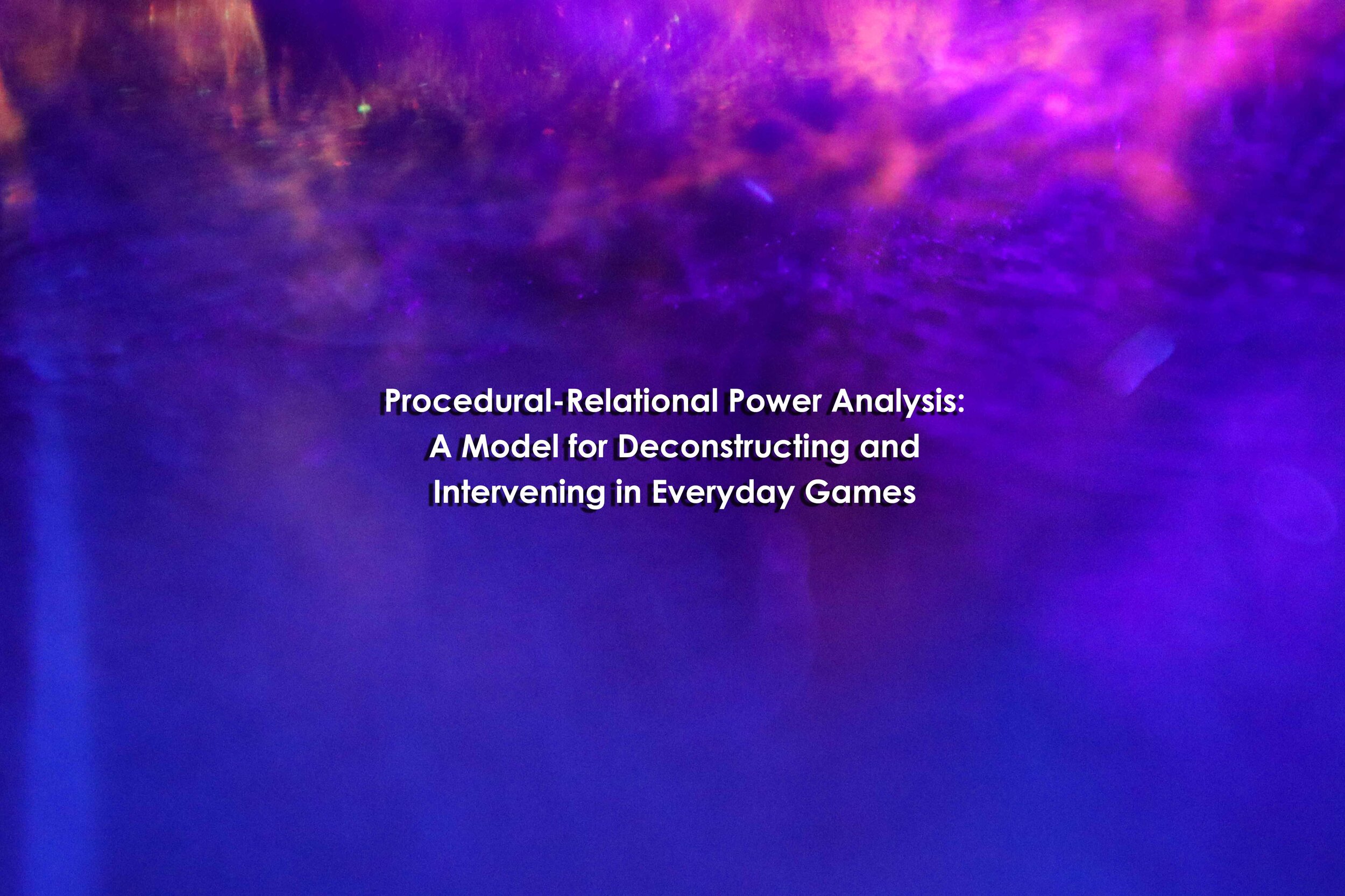Procedural-Relational Power Analysis: A Model for Deconstructing and Intervening in Everyday Games
Procedural-Relational Power Analysis: A Model for Deconstructing and Intervening in Everyday Games
Procedural-Relational Power Analysis: A Model for Deconstructing and Intervening in Everyday Games
Kristopher Purzycki
Abstract
The intervention in and reinterpretation of everyday games offers a method for experimenting with several criteria that are crucial to contemporary writing instruction. This chapter describes a rubric called the “Procedural-Relational Power Analysis” that can assist students in the development of their systems analysis and critical inquiry skills as well as the ability to identify and describe perspectives not their own. Using this hands-on framework, students engage complex rhetorical concepts, reinforce observation and inquiry skills, and experiment with fundamental critical theory. An illustrative case study offers a detailed description of how the students in a first-year composition course used the rubric to thoughtfully consider, intervene with, and reinterpret Tic-Tac-Toe. New versions of this everyday game that were created by student groups were then discussed to identify structures of power and the values those structures prioritize”.
Reference
Purzycki, K. (2021). Procedural-Relational Power Analysis: A Model for Deconstructing and Intervening in Everyday Games. In The Ethics of Playing, Researching, and Teaching Games in the Writing Classroom (pp. 159-180). Palgrave Macmillan, Cham.https://link.springer.com/chapter/10.1007/978-3-030-63311-0_10
Keywords
Intervention, games, perspectives

